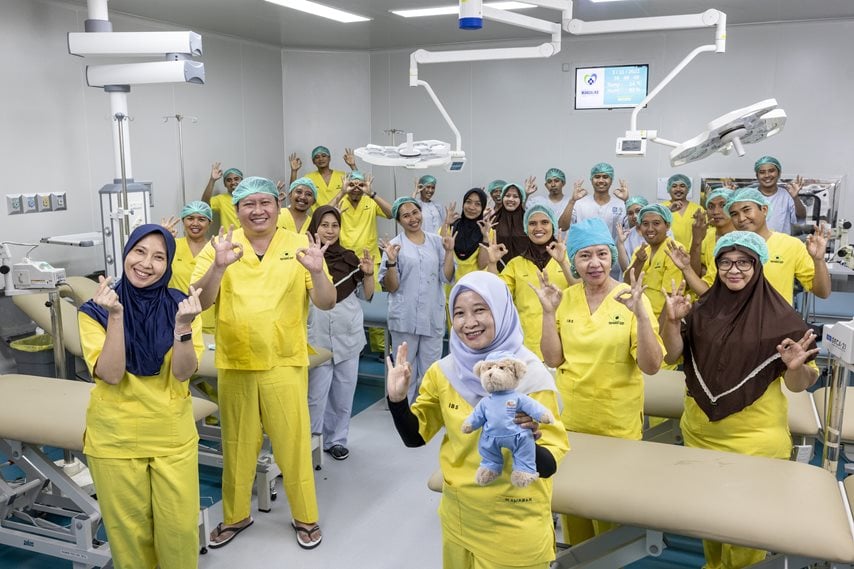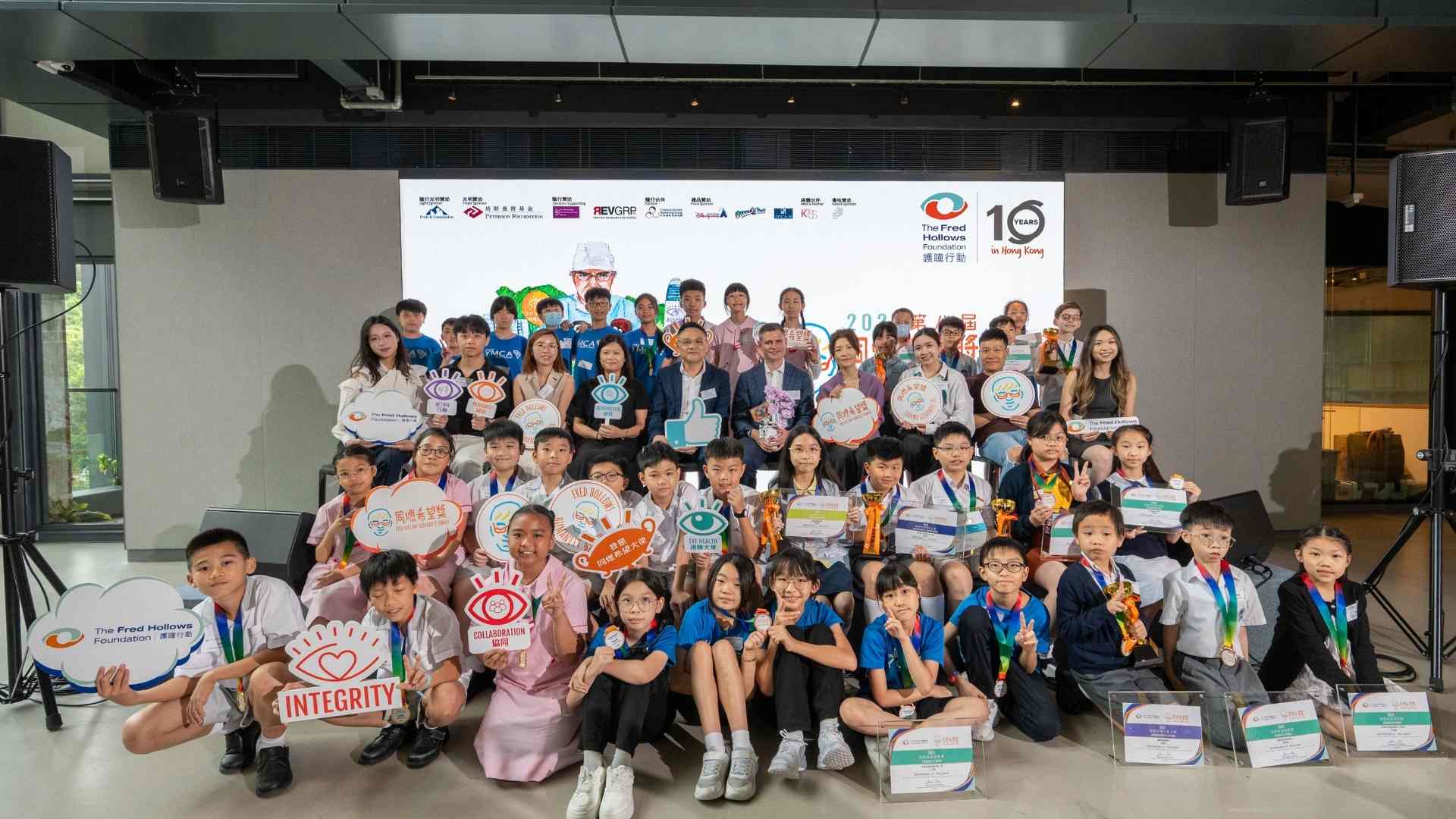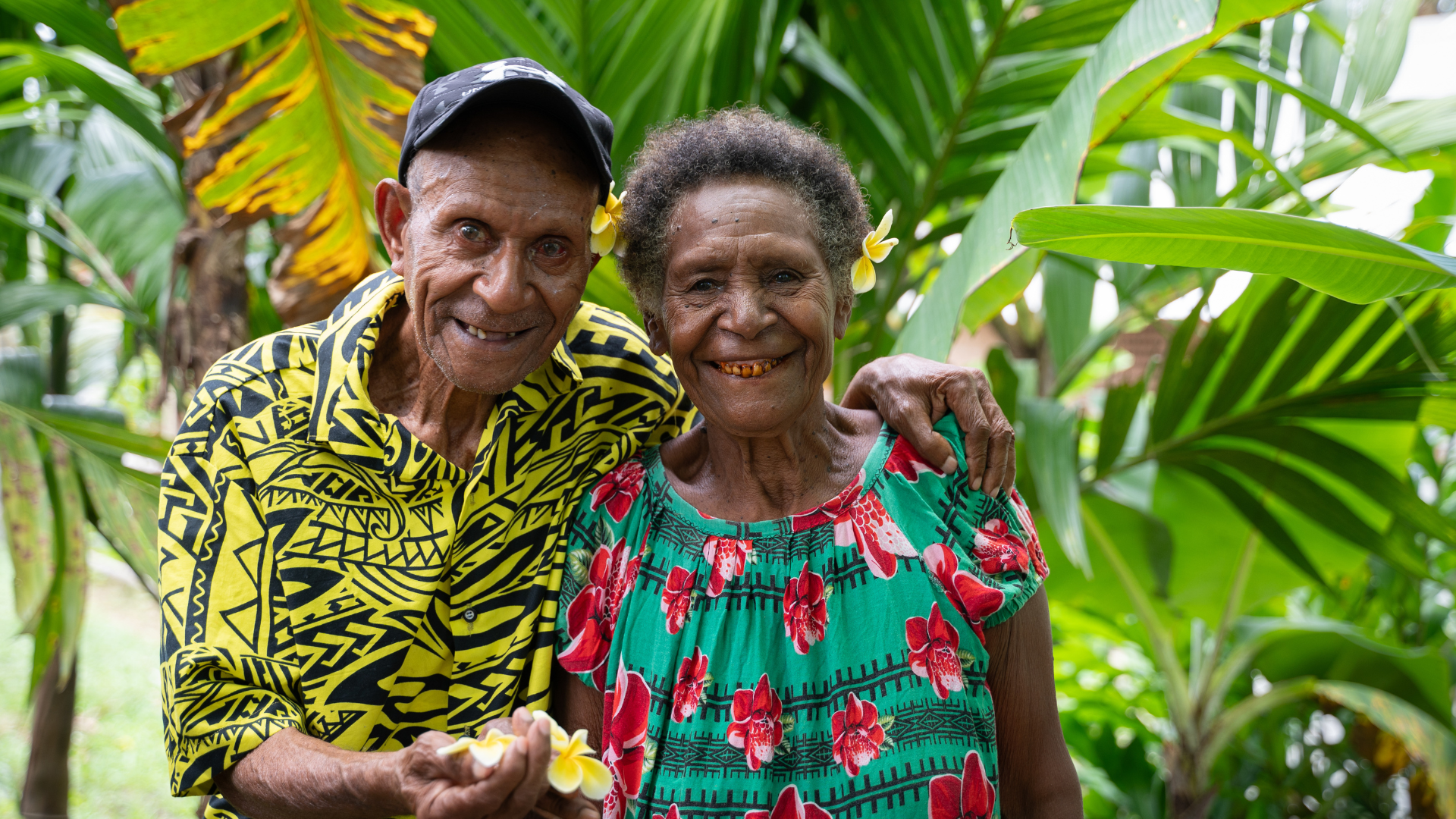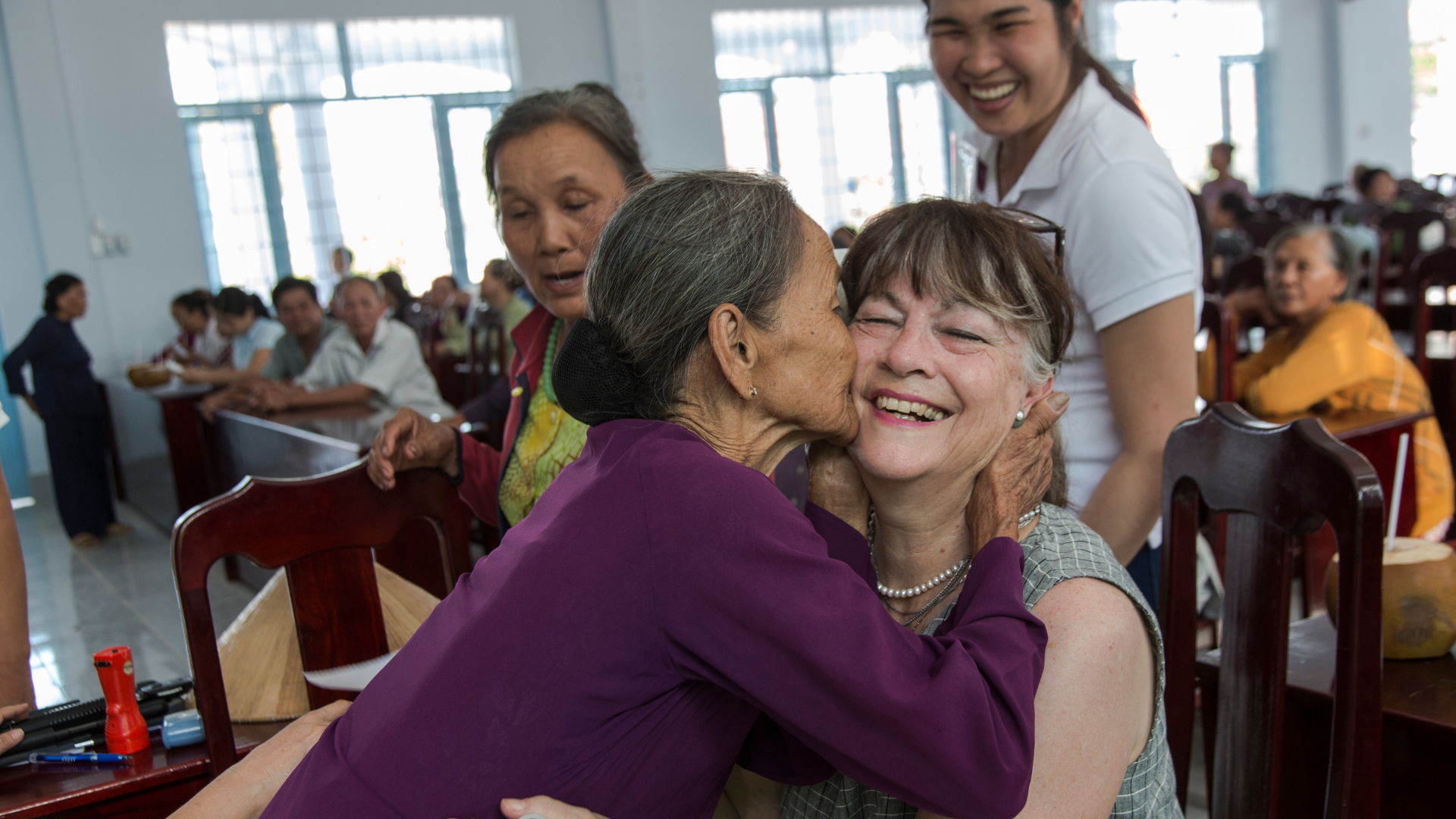International Women's Day: Celebrating Women in Eye Health

Fred Hollows believed that everyone who needed eye care, could and should receive it. In carrying on Fred’s spirit, International Women’s Day is an important date for The Foundation as we strongly advocate for women’s health and equality around the world.
Women and girls account for 55% of the world’s blind and vision impaired. Even though the prevalence of blindness is falling for everyone, over the past 30 years, the prevalence of blindness for men dropped by 33% compared to just 25% for women.
It’s clear that blindness disproportionately affects women.
The impact of vision impairment and blindness go far beyond the women affected, impacting their families and communities. That’s why The Fred Hollows Foundation is working hard to give women equal opportunities to access eye health services, and giving women the chance to be leaders, training more women eye health workers.
Today we celebrate some incredible women and reflect on the biases and challenges that they have been able to face and overcome. We could have chosen many more amazing stories but here are just a few that hopefully will inspire you.
CARRYING ON FRED’S LEGACY: FROM AUSTRALIA TO INDONESIA
In 2013, The Fred Hollows Foundation supported Dr Wulansari’s training in Hetauda, Nepal. She learned surgical techniques directly from Dr Sanduk Ruit, Fred's famous colleague and friend who himself has performed more than 120,000 cataract surgeries throughout his career.
For Dr Wulansari, nothing beats the feeling of witnessing a patient seeing clearly again after surgery.
“I’m very glad to see a patient see again. They can see, work, study, and pray without any problems. It makes me very happy,” she says.
More than 30 years since his death, Fred’s vision still lives on through passionate doctors and health workers like Dr Wulansari.
Fred was a firm believer that there should always be three people in a room: a teacher, a student and a patient. He knew that his students would eventually become teachers themselves too. While a country might only have one ophthalmologist, soon enough it could have two, then 10.
The Fred Hollows Foundation is carrying on Fred’s vision by training more women to become ophthalmologists who can not only improve eye health systems in their countries but also help to overcome gender barriers.
When it comes to healthcare, women are often associated with frontline health workers, volunteer community health workers, and nurses. But ophthalmologists like Dr Wulansari are changing this.
“I’m very, very thankful and grateful for The Fred Hollows Foundation, because of its generous support that inspire me and all of the ophthalmologists in Indonesia,” Dr Wulansari said.
A CHAMPION OF COMMUNITY EYE HEALTH
Filled with a cheerful spirit and a genuine desire to help people, nurse Ayu is well-loved in her Central Lombok community.
She has served as a general nurse since the 1990s but was trained by The Fred Hollows Foundation in 2014 and 2019, which allowed her to specialise in eye health. Her training has given her the confidence to help people suffering from eye diseases.
“From the training, I learned that blindness during old age can be cured. It’s not something that’s difficult and dangerous to do. Also, cataract surgery can help many people,” she says.
Since her training, she has assisted hundreds of people in getting eye health services, including cataract surgeries.
The Foundation strongly believes in uplifting women healthcare workers and their impactful work to help amplify their voices within healthcare. They know what the women in their communities need and the barriers they face, and their wealth of knowledge can improve the status of eye care for women globally.
“Being in the field of healthcare gives us an opportunity to help others,” nurse Ayu says.
FRED HOLLOWS FELLOW MAKING A MARK ON CHILDREN’S EYE HEALTH IN MONGOLIA
Since 2012, The Fred Hollows Foundation has partnered with the International Council of Ophthalmology (ICO) to support fellowship opportunities for ophthalmologists in developing countries. Fellowships provide valuable training and professional networks for ophthalmologists and supports their work to prevent blindness in their home countries. Ophthalmologists who hone their skills and learn new techniques through a fellowship go on to share what they have learned with other eye care professionals in their communities, creating a lasting ripple effect.
Ophthalmologist Lkhagvatseren Tumenjargal, or Tumee, studied ophthalmology in Romania, and when Tumee returned to Mongolia, she was determined to specialise in paediatric ophthalmology so she can help children suffering from vision loss in Mongolia.
There were no avenues to study paediatric ophthalmology in Mongolia, but her fortunes changed when she secured an International College of Ophthalmology (IOC) fellowship with The Fred Hollows Foundation to study at the University of Bologna in Italy.
Mongolia’s unique geography and extreme weather conditions also create obstacles for people to access the eye health services they need.
“Many people have a nomadic lifestyle and the whole time they are outside so have pterygium and corneal conditions because of the weather and the dryness,” she said.
To access treatment, children from Mongolia’s 21 aimags, or provinces, need to travel thousands of kilometres to the capital Ulaanbaatar.
“We have in Mongolia about 150 ophthalmologists, but I think there are only 20 to 25 paediatric ophthalmologists.”
Tumee is determined to play her part in promoting better eye health in Mongolia. She recently completed an eye screening project reaching 42,000 school children and is studying to become a master refractionist so she can train future generations of eye health workers.
Related articles

「2025同燃希望獎」圓滿結束!

Eye disease trachoma eliminated in Papua New Guinea

